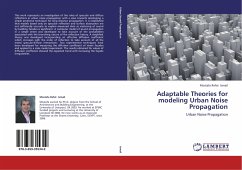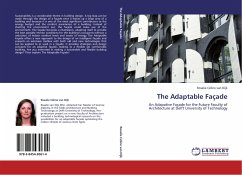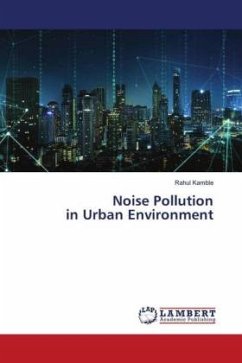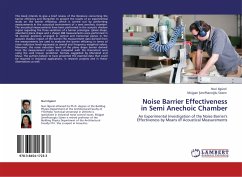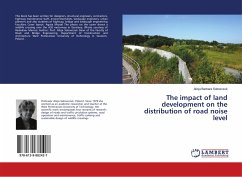This work represents an investigation of the roles of specular and diffuse reflections in urban noise propagation with a view towards developing a simple predictive technique for long distance propagation. It is established that models based only on specular reflection and surface absorption are not sufficiently accurate to explain measured data as scattering of sound by building facades is significant. A computer model of sound propagation in a simple street was developed to take account of the probabilities associated with the branching nature of the reflection history. A simplified theory was developed incorporating an effective diffusion coefficient which increases with the order of reflection to take account of all the mixed specular-diffuse interactions. Two experimental techniques have been developed for measuring the diffusion coefficient of street facades and applied to a scale model experiment. The results obtained for values of diffusion coefficient showed the expectedtrend with increasing the façade irregularities.

